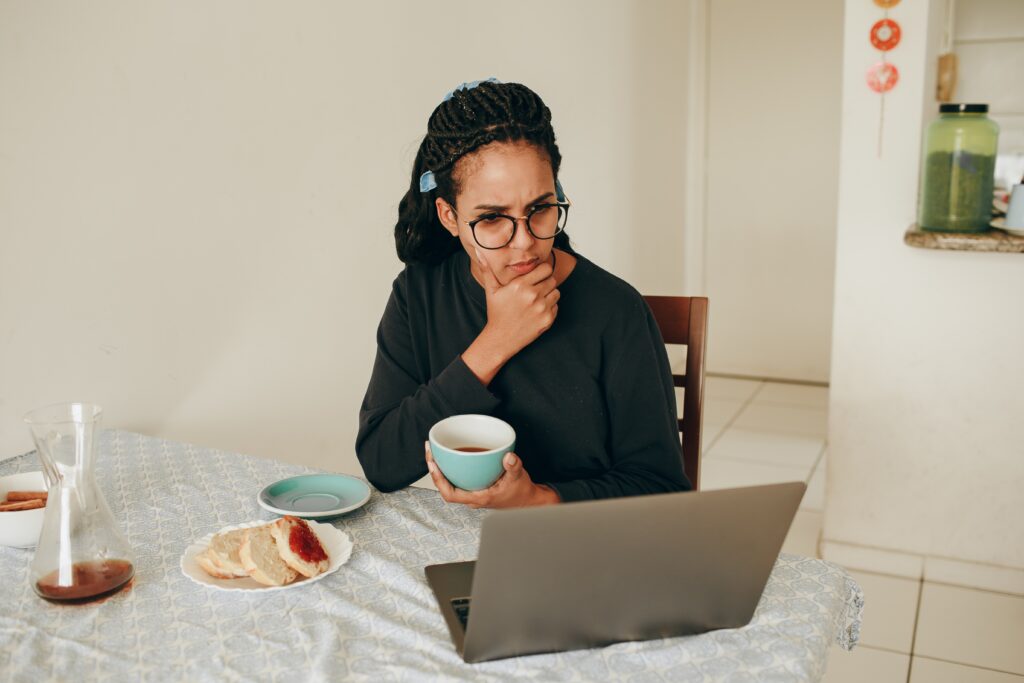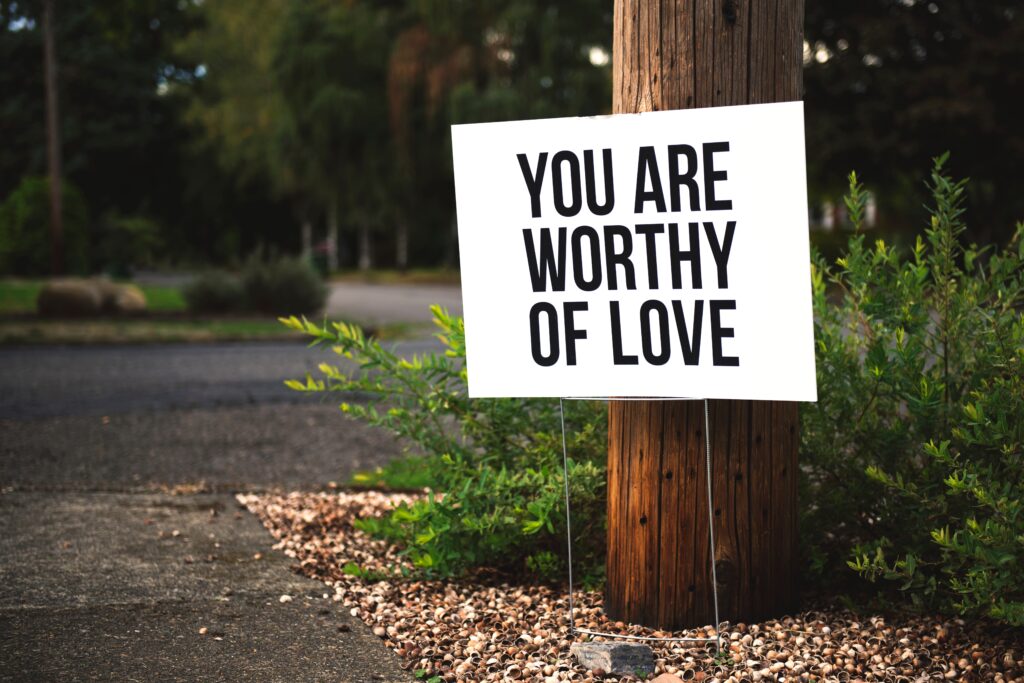Is your low self esteem impacting your relationship? I will discuss some tips on how to deal with low self esteem in relationships in order to have a connected and loving relationship.
Hey There! I’m Diana Garcia, a Licensed Mental Health Counselor in Florida and owner of a private practice called Nurturing Minds Counseling. In this blog, I want to give you some tips to overcome low self esteem in relationships. If you prefer to watch a video, you can watch it below. If not, keep scrolling to read the blog.
- Watch Video: How to Improve Self Esteem in Relationships
- Read Blog: How to Improve Self Esteem in Relationships
- What is Low Self Esteem?
- The Impact of Low Self Esteem in Relationships
- Tip 1: Identify Your Behaviors of Low Self Esteem in Your Relationship
- Tip 2: Understand How Past Experiences Are Impacting Your Self Esteem
- Tip 3: Identify Ideal Behaviors That You Want to Do
- Tip 4: Incorporate More Mindfulness or Increase Self-Awareness
- Tip 5: Identify New/Different Behaviors You Will Practice
- Tip 6: Reminder: You are Worthy of Being in a Loving and Secure Relationship
- Tip 7: Express Your Feelings and Needs to Your Partner
- Tip 8: Be Open to Receiving Feedback from Your Partner
- Tip 9: Set & Respect Boundaries
- Tip 10: Healing Past Wounds in Your Current Relationship
- Tip 11: Focus on Other Aspects and Social Relationships in Your Life
Watch Video: How to Improve Self Esteem in Relationships
Read Blog: How to Improve Self Esteem in Relationships
What is Low Self Esteem?
Have you ever thought about how you perceive yourself? That’s what self esteem is all about! Self esteem refers to a person’s self-evaluation and how they perceive themselves. In our society, self esteem is often categorized as either high or low. Positive thoughts about oneself characterize high self esteem, while low self esteem is the opposite, with negative self-thoughts dominating. I encourage my clients to move away from focusing on self esteem and instead focus on self-acceptance.
The Impact of Low Self Esteem in Relationships
The truth is that low self esteem can not only affect the relationship that you have with yourself but it can play a drastic role in how you engage in your relationships with others including romantic partners, family members and friends. For today’s blog, I want to give you tips for dealing with low self esteem in relationships aligned with self-acceptance. If you’re curious about more signs of low self esteem in relationships, check out this blog: 8 Signs of Low Self-Esteem in a Relationship.
Tip 1: Identify Your Behaviors of Low Self Esteem in Your Relationship
Start by exploring which signs of low self esteem might be affecting your relationship. Take some time to reflect on what resonates with you and how it might be influencing your behavior. For instance, if you have a fear of abandonment and have had a recent disagreement with your partner, you might start to worry that they’ll leave you. This could trigger a need for reassurance and cause you to try to resolve the situation with your partner. It’s important to trace these feelings of anxiety, uncertainty, or shame back to your behaviors.

Think about how your partner might perceive your actions. Do they feel like you’re nagging them or that you don’t trust them and check up on them too often? Recognizing these behaviors is a vital step in understanding what changes you need to make to address your low self esteem in relationships. Analyzing your behavior can help you see how it’s affecting your relationship.
Tip 2: Understand How Past Experiences Are Impacting Your Self Esteem
Now that you understand behavior, it’s important to recognize how past experiences can affect your current behaviors. For example, if you’re afraid of being abandoned, it may be because of things that happened in your childhood or past relationships that contribute to your uncomfortable thoughts and feelings. It’s crucial to identify these past experiences so that you can work through them. To start, it’s important to understand what those experiences are. Maybe there’s a relationship with your mom that needs attention, or maybe you were abandoned or betrayed in a past relationship.
When you’re identifying your past experiences, it’s helpful to distinguish them from your present. This means acknowledging that what happened in previous relationships doesn’t necessarily reflect what’s happening in your current relationship. We all have past baggage that tends to show up in our present lives, so it’s important to recognize when your baggage might be skewing your perception and separate your past from your current relationship.
Tip 3: Identify Ideal Behaviors That You Want to Do
Once you’ve identified the behaviors you need to change, I suggest you understand the ideal behaviors you want to embody. It’s also helpful to get some feedback from your partner so you can better understand which behaviors might be causing issues in your relationship. For example, if you tend to feel abandoned, try setting a goal to sit with those emotions without acting on them. These ideal behaviors can serve as your guideposts as you work towards becoming the best version of yourself.
Tip 4: Incorporate More Mindfulness or Increase Self-Awareness
It’s important to be more mindful and aware of when certain behaviors appear. Without this awareness, it’s difficult to change those behaviors. Start by identifying specific triggers that consistently lead to unhelpful behaviors.

Look for clues within yourself, such as racing thoughts and increased heart rate, which may indicate the onset of anxiety and potentially harmful behaviors towards your partner. It’s crucial to pay attention to these clues and be mindful of them when in similar situations. Without this awareness, it’s impossible to make a change in the moment.
Tip 5: Identify New/Different Behaviors You Will Practice
It is important to determine the actions you will take in challenging moments. It is not enough to just know what to do in these situations but to have a plan in place. Consider alternative actions you could take, such as reaching out to a friend, writing in a journal, or taking a walk. Think about how you will care for yourself during these moments.
When we fall into old habits, we may default to certain behaviors. It is beneficial to pause and experiment with new actions instead. These do not need to be drastic changes, but small steps like talking to a partner or going for a walk can help ground you. Give yourself space to try different approaches and find what works best for you.
Tip 6: Reminder: You are Worthy of Being in a Loving and Secure Relationship
This is a general reminder to remember that you are worthy of loving and healthy relationships. Even if you have low self esteem in relationships and are working through that, I want you to acknowledge that you are worthy and don’t have to earn your worth. The whole point of changing these behaviors isn’t so that you are all of a sudden worthy; it’s for you to show up differently in your relationship.

Have the mindset that who you are person is enough. That doesn’t mean that some behaviors don’t have to change because those behaviors aren’t helpful, but not engaging with those thoughts. Sit in the seat of confidence and start to lean into you being worthy and you are enough. You don’t have to hustle for your worthiness or bargain for it.
Tip 7: Express Your Feelings and Needs to Your Partner
In a healthy and safe relationship, it’s important for both partners to express their needs. If you struggle with low self esteem in relationships, you may find it difficult to communicate your needs or feel uneasy about causing conflict. However, it’s helpful to understand that open communication is key to a successful relationship. Take some time to identify your needs and express them to your partner.
It may also be helpful to provide some context for your needs and emotions. This can give your partner a better understanding of why certain things trigger certain reactions. However, it’s important to approach this conversation carefully. Don’t bring it up in the heat of the moment when emotions are high. Instead, use a gentle tone and “I” statements to express yourself. For more information on effective communication in relationships, I recommend checking out this blog: Book Therapy: The Seven Principles for Making Marriage Work.
Tip 8: Be Open to Receiving Feedback from Your Partner
In a healthy relationship, it’s important to express your emotions to your partner and receive feedback without feeling ashamed or lashing out. If you struggle with low self esteem, you may find yourself withdrawing and shutting down. However, being open to feedback is key to maintaining a healthy relationship. It’s helpful to create a safe space for yourself to receive feedback.

If you’re not in the right headspace to receive feedback, it’s okay to communicate that to your partner. You can say something like, “I’m feeling overwhelmed right now, and I don’t think I can handle feedback. Can we revisit this in an hour or on the weekend?” It’s important to not internalize the feedback and criticize yourself, as this won’t help you grow. Instead, try to catch and notice these thoughts and focus on constructive ways to move forward.
Tip 9: Set & Respect Boundaries
In a healthy relationship, it’s important to have open and honest communication with your partner. This means expressing your needs and setting boundaries for yourself, while also considering your partner’s feelings. It’s a two-way process that requires mutual respect and understanding. When conflicts arise, it’s important to work through them together by communicating effectively and finding a resolution that works for both of you. By setting and respecting boundaries, you can create a healthy and fulfilling relationship that lasts.
Tip 10: Healing Past Wounds in Your Current Relationship
This advice is for repairing any damage in your relationship. I have previously discussed the importance of separating from past hurt and giving your current partner the benefit of the doubt. However, it’s important to acknowledge that long-term relationships may have lingering wounds. If there has been a lot of pain, betrayal, or hurt, it’s understandable that it could become a trigger for your low self esteem now.
It’s helpful to determine if one or multiple attachment wounds have occurred in your relationship. If this is the case, it’s essential to decide how to move forward and what’s keeping you stuck. Do you feel like you haven’t talked about it with your partner, or do you think your partner doesn’t understand or acknowledge your feelings? Perhaps they are unaware of what they are doing. Identifying these attachment wounds is crucial, and working on them together and individually is necessary. Acknowledge and understand how these attachment wounds are affecting your relationship, and communicate with your partner to resolve them.
Tip 11: Focus on Other Aspects and Social Relationships in Your Life
One important suggestion is to have a variety of interests and relationships outside of your romantic partnership. This can include social connections, friendships, family, work relationships, group memberships, and hobbies. Sometimes, if we focus solely on our romantic relationship, we may be dedicating too much time and energy to it.

Of course, it’s important to prioritize your romantic relationship and dedicate time and energy to it as well. If you find that you’re not dedicating enough time to it, that’s another issue to consider. However, be aware that you’re not using other activities or relationships as a way to avoid your partner. For example, volunteering for a cause may be a great way to distract yourself from being at home with your partner, but it doesn’t address the underlying issues in your relationship.
If you notice that you tend to put all your time and energy into your romantic relationship and it feels like the only relationship that sustains you, it’s a good idea to think about other areas or relationships in your life that you can cultivate and nurture.
Subscribe to my email newsletter by completing the form below to get more videos, tips, or content directly into your inbox and make it easier for you. I share book recommendations and things to improve your mental health. As always, I encourage you to continue nurturing your mind, body, and soul however that looks for you.
